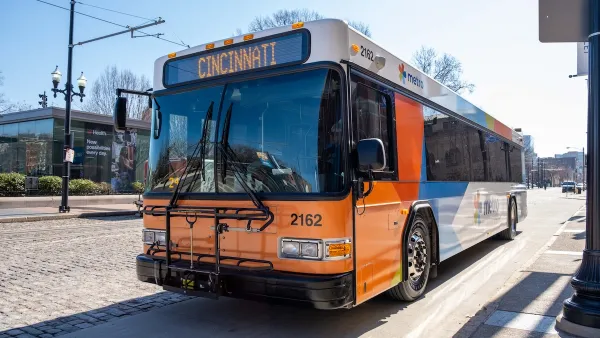GE is abandoning its 68-acre suburban campus in Fairfield, Conn. for Boston's Seaport District. As WBUR's technology reporter, Curt Nickisch put it, "Today's knowledge workers want bike racks and subway stops not country clubs and parking garages."
Scott Simon, host of NPR's "weekend edition saturday," explains that the move relates to GE's "sale of its appliance group (and) recent shift to selling services and sophisticated goods like jet engines and power turbines instead of household goods."
The company announced on Wednesday (Jan. 13) that it will be moving its headquarters from its sprawling, 68-acre campus in Fairfield, Conn., 50 miles outside of New York City, to Boston, starting this summer.
[Correspondent's note: Readers may wish to listen to the audio to get a better idea as to why GE is moving.]
To get an idea of the workers GE hopes to attract, Nickisch visits a small, growing tech company in Boston.
"(The employees) leave at reasonable hours [so] that they can go do things that are important to them, whether it's having dinner with friends, going to the gym, what have you," states the chief operating officer of Boston startup EverTrue, and the only employee over 30 in a room full of workers. They tend to get back online later on at night because we have a lot of work to do as well. They're just really, really ambitious, young go-getters."
"GE’s decision to move its corporate headquarters to Boston is part of a larger business trend of leaving the suburbs for the city," writes Nickisch in the WBUR version of this report.
"Labor market economist Enrico Moretti at UC Berkeley says GE's move is reversing an old trend," writes Nickisch. "Companies left troubled cities in the '70s and '80s for manicured suburban office parks. Now they're moving back into revitalized urban centers."
Moretti is also quoted in a 2013 Wall Street Journal article (posted here) on cities leaving the suburbs for the cities.
Nickisch conclude on WBUR that the move sends a message to other companies based in the suburbs that may be considering "back to the city" moves:
If corporate managers haven’t noticed yet, they will now. General Electric has been able to stay an industrial giant for more than a century by changing with the times. Its move to Boston shows where it thinks the future will be made.
In its "Cognoscenti" section, Susan E. Reed takes a deeper look into GE's relocation—what it means for GE and Boston.
Boston is not the only city where GE has relocated. Posts last year and in 2014 describe the company's recent investments in downtown Cincinnati.
FULL STORY: GE's Big City Move Part Of Larger Tech Trend

Maui's Vacation Rental Debate Turns Ugly
Verbal attacks, misinformation campaigns and fistfights plague a high-stakes debate to convert thousands of vacation rentals into long-term housing.

Planetizen Federal Action Tracker
A weekly monitor of how Trump’s orders and actions are impacting planners and planning in America.

Chicago’s Ghost Rails
Just beneath the surface of the modern city lie the remnants of its expansive early 20th-century streetcar system.

Bend, Oregon Zoning Reforms Prioritize Small-Scale Housing
The city altered its zoning code to allow multi-family housing and eliminated parking mandates citywide.

Amtrak Cutting Jobs, Funding to High-Speed Rail
The agency plans to cut 10 percent of its workforce and has confirmed it will not fund new high-speed rail projects.

LA Denies Basic Services to Unhoused Residents
The city has repeatedly failed to respond to requests for trash pickup at encampment sites, and eliminated a program that provided mobile showers and toilets.
Urban Design for Planners 1: Software Tools
This six-course series explores essential urban design concepts using open source software and equips planners with the tools they need to participate fully in the urban design process.
Planning for Universal Design
Learn the tools for implementing Universal Design in planning regulations.
planning NEXT
Appalachian Highlands Housing Partners
Mpact (founded as Rail~Volution)
City of Camden Redevelopment Agency
City of Astoria
City of Portland
City of Laramie




























